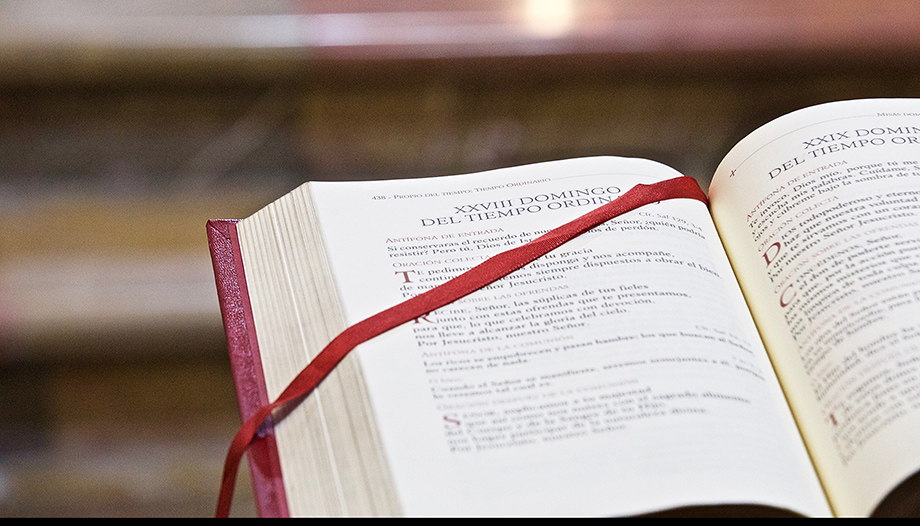How much the Holy Father insists on the care and welcome of migrants and refugees! Time and again Pope Francis has urged the world, and the Church, to be more open to our suffering brothers and sisters who come to our shores fleeing poverty and persecution, whatever their ethnic or religious background. A true Catholic heart makes no distinctions. Being Catholic, for Francis, means both "going out to everyone," especially the excluded - those on the "existential peripheries," as he puts it - and "welcoming everyone," loving first and only then thinking about practical problems, and even then only to solve them.
But this insistence is not an invention of the Pope. It is the teaching of the Bible and, very concretely, of our Lord Jesus. And this is made very clear in today's readings. At a time when holiness, for the people of Israel, was often seen as something exclusive, keeping a distance from the pagan nations, who were seen as idolaters and sources of temptation, God insists through the prophet Isaiah on integrating them into the life and worship of Israel.
"Those strangers who have joined themselves to the Lord to serve him, to love the name of the Lord and to be his servants, who observe the Sabbath without profaning it and keep my covenant, I will bring them to my holy mountain, I will make them rejoice in my house of prayer; their burnt offerings and sacrifices shall be acceptable on my altar; for my house is a house of prayer, and so shall all peoples call it.".
In the second reading, St. Paul speaks of having been "sent to the pagans"a fact of which he is proud. In fact, he explains, his ministry to them is in part to incite the Israelites to conversion. Our own outreach to non-Catholics and other ethnic groups can also lead us to conversion.
And the whole gospel is about Jesus reaching out to a person - a pagan woman - beyond the limits considered "acceptable" by the Israelites of that time. Jesus uses a graphic image to teach that his primary mission was certainly directed toward Israel itself: "It is not well", he says, "taking bread from the children and throwing it to the puppies". Certainly, many Israelites would have seen the pagans as mere dogs. But Jesus uses the image in a deeper sense: Israel is God's chosen people, his firstborn, his son, and therefore has a preferential right to his teaching. But the woman's response surprises Jesus and leads him to praise her for her great faith: "But she replied: 'You are right, Sir; but the little dogs also eat the crumbs that fall from their masters' table'.". As we also see on other occasions (cf. Mt 8:10), the pagans can, if they have the opportunity, show more faith than God's own people.
And the same is true today: if they have the opportunity, foreigners, immigrants, refugees, migrants can also surpass us in faith. So let us not see them as a problem, but as an evangelizing opportunity.
Homily on the readings of the 18th Sunday in Ordinary Time (A)
The priest Luis Herrera Campo offers its nanomiliaA short one-minute reflection for these Sunday readings.







